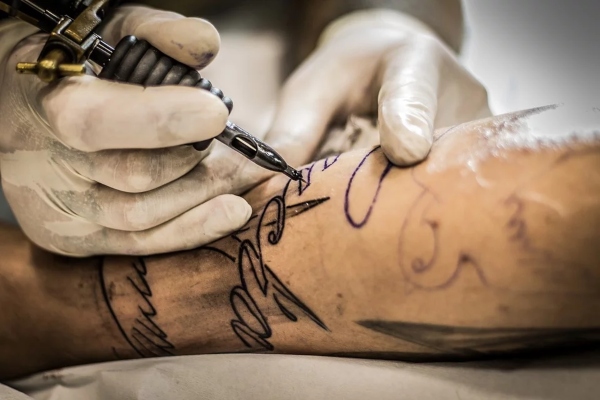The U.S. Coast Guard has standards and expectations like every other branch of the military.
Personal appearance is something that the military takes very seriously from the uniform down to facial hair and tattoos.
The Coast Guard permits tattoos in certain places but has restrictions on other parts of the body.
Furthermore, the content of the tattoo is also restricted by the military branch in order to determine appropriateness.
In a nutshell, the Coast Guard tattoo policy can be summarized as follows:
- There aren’t any restrictions on the size, number, or coverage of tattoos
- With that said, tattoos are NOT allowed on the face, or head, and are limited on the neck and hands
- Half and full-sleeve tattoos ARE allowed
- One finger tattoo or ring tattoo per hand is also allowed, provided they don’t exceed the length of the finger from the first to the second knuckle
- 1 other hand tattoo is allowed between the wrist and first knuckle, as long as it’s not bigger than 1 inch in diameter.
- One 1-inch diameter tattoo is permitted behind one ear only.
- Tattoos on the palm of the hand are not authorized.
- Eyebrow microblading is permitted for both men and women
- Racist, discriminatory, indecent, extremist, supremacist, and violent tattoos are NOT allowed
Here’s a look at the tattoo policies in more detail.
Related Article – Coast Guard PT Test Standards
Jump To A Section
What Tattoos Are Allowed In The Coast Guard?

The Coast Guard serves as maritime law and coastal defense for the United States.
As a result, you would expect the Coast Guard tattoo policy to align closely with the U.S. Navy, which is partly true.
Though the Coast Guard has made minimal updates to its tattoo policy over the last few years, its standards remain fairly liberal in terms of body art.
The last sweeping changes were unveiled in 2022, with a few additions for the beginning of a new decade.
According to COMDTINST 1000.1E, April 2022, the purpose of the standards is to:
“Ensure the uniformed workforce presents a sharp and professional military appearance to the public, while allowing individual expression through authorized body art that is consistent with the Coast Guard’s Core Values.”
The Coast Guard tattoo policy extends to not only new recruits, but all unit commanders, officers, officers-in-charge, deputy/assistant commandants, and chiefs of headquarters staff.
Related Article – Coast Guard Ranks And Pay
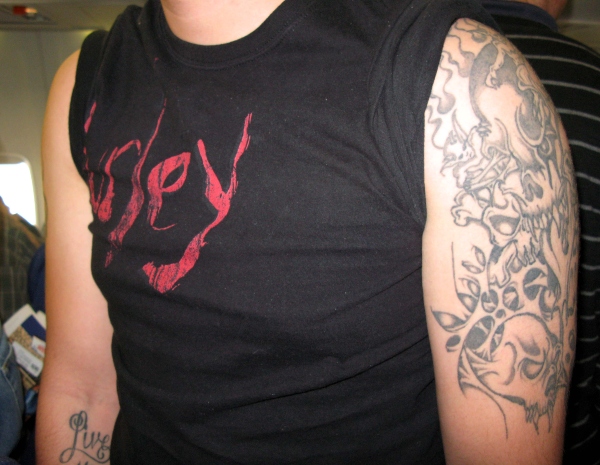
Tattoos are permitted in the Coast Guard on most parts of the body.
There are no restrictions on the number, size, or percentage of coverage of tattoos apart from the head, face, neck, and hands.
Body branding is limited to one 4-inch x 4-inch area while in the Coast Guard. Those who entered the Coast Guard with existing brands must have them documented and refrain from receiving additional brands during service.
Tattoo sleeves (full and half-sleeves) are also authorized in the U.S. Coast Guard.
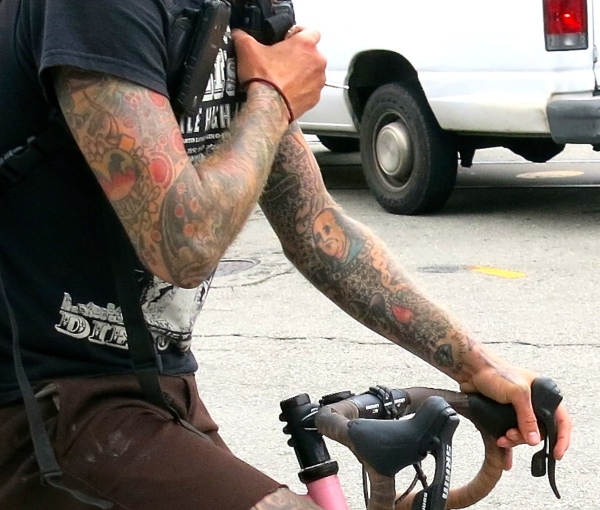
Recent Updates to the Coast Guard Tattoo Policy
The Coast Guard recently revised its tattoo policy in order to authorize three more locations for body art:
- Chest tattoos are now allowed as long as they are not visible above a crew neck T-shirt.
- One finger tattoo or ring tattoo per hand.
- One hand tattoo between the wrist and first knuckle, no bigger than 1 inch in diameter
- One small tattoo under 1 inch in diameter on the back of the neck is permitted.
Related Article: Coast Guard Age Limit

Additionally, the Coast Guard tattoo policy recently adapted to authorize ultraviolet, black-light, and cosmetic tattoos.
It is the only military branch to allow these types of body art in most situations.
The Coast Guard allows cosmetic tattoos in order to cover up scar tissue or to make other medical issues less prominent in appearance.
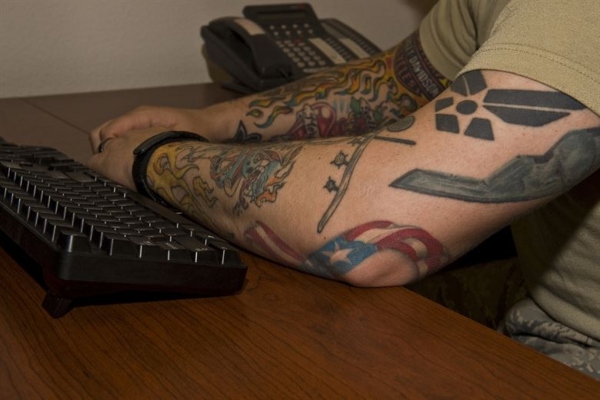
Lastly, permanent eyebrow or eyeliner makeup that consists of tattoos is only permitted on female members.
It must also be “conservative, in good taste, and complementary to the wearer’s complexion and the uniform.”
Permanent makeup cannot be brightly colored or extend past the outer corner of the eye.
It also cannot reach a width of more than 1/8 inch.
However, eyebrow microblading specifically is authorized for both men and women.
Related Article: How To Join The Coast Guard
What Tattoos Are NOT Allowed In The Coast Guard?

While the Coast Guard tattoo policy is pretty liberal, there are a few major no-nos.
The Coast Guard regularly inspects ‘Coasties’ for tattoos and brands in order to make sure they remain in compliance.
The military branch does not allow tattoos on the head, scalp, face, or majority of the hands.
Two exceptions exist: One hand and one finger tattoo per hand and one small tattoo of less than 1-inch in diameter is authorized on the back of the neck.
Otherwise, tattoos on the neck and hands are generally not authorized unless you are granted a waiver.
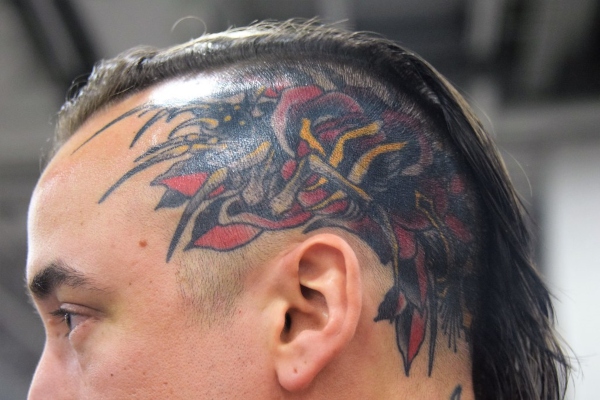
The Coast Guard considers your hand any flesh of the body that exists below the wrist bone.
Furthermore, Coasties are not allowed to have any type of body mutilation.
Mutilations are described by the Coast Guard as “intentional alterations and/or modifications to a member’s body”.
These can include things like intentional scarring, excessive piercings, tongue splitting, or skin decorative implants.
Related Article: 5 Best Coast Guard Jobs
Unauthorized Coast Guard Tattoos Based on Content
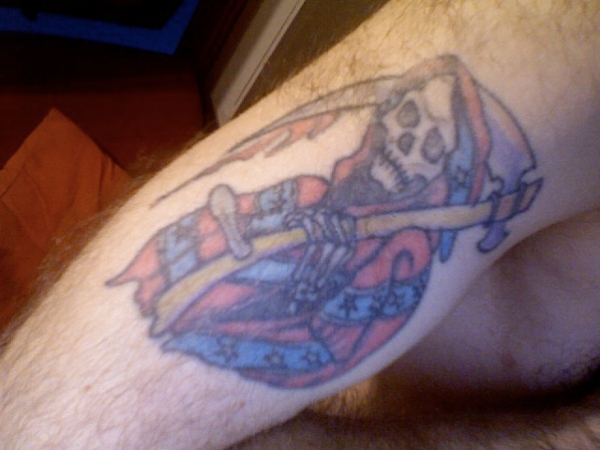
The Coast Guard, like other uniformed branches, has less of a tolerance for the content of tattoos compared to its placement on the body.
Consequently, there are several types of tattoos that are strictly forbidden in the Coast Guard.
In short, tattoos or brands anywhere on the body that promote racism/discrimination, indecency, extremist or supremacist philosophies, violence, lawlessness, or sexually explicit material are prohibited.
- Racist/Discriminatory Tattoos: Body art is not allowed to degrade based on race, ethnicity, national origin, or gender.
- Indecent/Sexually Explicit Tattoos: Indecent tattoos also include sexually explicit tattoos that contain inappropriate images. Tattoos that feature fully exposed nudity, or depict sexual activities or organs are not authorized.
- Extremist/Supremacist Tattoos: Brands or tattoos cannot promote extremist activities or organizations (i.e. neo-Nazis) that advocate hatred, intolerance, or lawlessness.
- Violent/Lawlessness Tattoos: Body art that depicts extreme graphic violence, profanity, the glorification of drug culture, or markings that are reasonably interpreted as anti-government are disallowed in the Coast Guard.
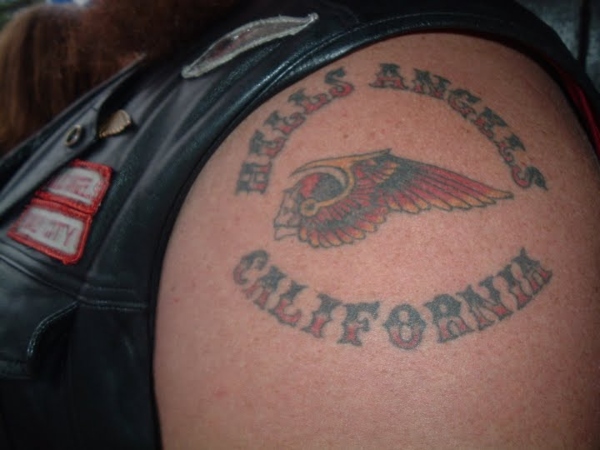
The Coast Guard acknowledges that it is difficult to evaluate every single tattoo in the military that may violate content policies.
Therefore, care is taken when evaluating tattoos or brands in order to not implicate personnel who may have selected the ink based on its artistic value rather than a hidden meaning.
Related Article: 18 Pros And Cons Of Joining The Coast Guard
Frequently Asked Questions (FAQ) – Coast Guard Tattoo Policy
The Coast Guard tattoo policy opens the conversation for several different questions.
Here are some of the more frequently asked ones:
Can you have a full-sleeve tattoo in the Coast Guard?
Yes, the Coast Guard does not place any restrictions on arm or leg tattoos, unlike the U.S. Marines.
Military personnel in the Coast Guard are allowed to sport both full and half-sleeve tattoos on the arms or legs.
Just make sure that the content of the tattoo sleeve does not violate any of the inappropriate/offensive issues listed under the Coast Guard tattoo policy.
Can you have neck/face/hand tattoos in the Coast Guard?
In general, no, but some small tattoos are allowed on the hands and back of the neck.
Head, scalp, and face tattoos are not authorized in the Coast Guard, like every other military branch, and for good reason.
Meanwhile, hand tattoos were once prohibited but under the new policy, service members are authorized one hand and one finger tattoo per hand.
There are restrictions on the size of hand and finger tattoos in the Coast Guard.
Lastly, one small tattoo is permitted on the back of the neck.
Related Article: Coast Guard Height And Weight Requirements
Will the Coast Guard pay to remove tattoos?
The Department of Defense does not generally provide funding for tattoo removal.
Are Coast Guard officers allowed to have tattoos?
Yes, the Coast Guard tattoo policy states that officers are held to the same standards as enlisted personnel.
Therefore, having/getting body ink in the future will not limit your opportunities for promotion in rank in the future, unlike previous generations.
Coast Guard officers are also responsible for the appearance of the Guardsmen under their supervision, including compliance with the tattoo policy.
Related Article – Coast Guard Reserve Pay And Benefits
Can you get a waiver for tattoos in the Coast Guard?
The military does grant waivers for a variety of issues that otherwise would violate one of their policies.
Therefore, it is possible to receive a waiver from the Coast Guard for your tattoos. However, it isn’t something you should count on.
Regardless, the Coast Guard is more likely to grant a waiver for body placement violations compared to content violations.
What happens if you violate the Coast Guard tattoo policy?
According to the Coast Guard tattoo policy, active duty or reserve members whose tattoos or brands violate the policy have a couple of options.
A) The service member may seek medical advice regarding the removal or alteration of body art in order to reach compliance.
Or B) refuse to change or remove the tattoo and face disciplinary action.
Coasties that are unwilling to follow the orders as outlined in the Uniform Regulations manual are administratively separated from the maritime branch.
Related Article – Coast Guard Jobs List: A List Of All 22 Ratings In The Coast Guard
What other grooming standards does the Coast Guard have?
The Coast Guard has looser standards for personal grooming compared to other military branches.
Despite that fact, there are still several things that are prohibited in the Coast Guard.
Haircuts are tightly regulated for both male and female personnel.
Additionally, men are only permitted to have mustaches and sideburns with stipulations.
Beards or any other type of facial hair is not authorized in the U.S. Coast Guard.
Body piercings are also prohibited in uniform, with the exception of women, who may have one pair of studded earrings.
Regardless of the sex, no piercing “shall be made through the ear, nose, tongue, chin, eyebrow, or any other body part that would be visible while in uniform,” according to the manual.
Other types of piercings that are concealed by a uniform (i.e. nipple piercings) are strongly discouraged due to the potential for infection and medical complications.
Related Article – Coast Guard Grooming Standards
Conclusion
The Coast Guard tattoo policy for 2023 is designed to strike a balance between personal expression and military professionalism.
Coasties appreciate a fairly liberal tattoo policy that allows ink on most parts of the body aside from the head and face.
While there are exceptions on neck and hand tattoos, as well as what types of body art are permitted, overall there are plenty of ways to express yourself in the military branch.
Tattoo Policies For Other Military Branches
- Ikon Pass Military Discount: Learn How To Save Big - January 31, 2025
- RTIC Military Discount: Find Out How To Save Big on Gear - January 30, 2025
- Traeger Military Discount: Learn How To Save Big on Smokers - January 28, 2025

